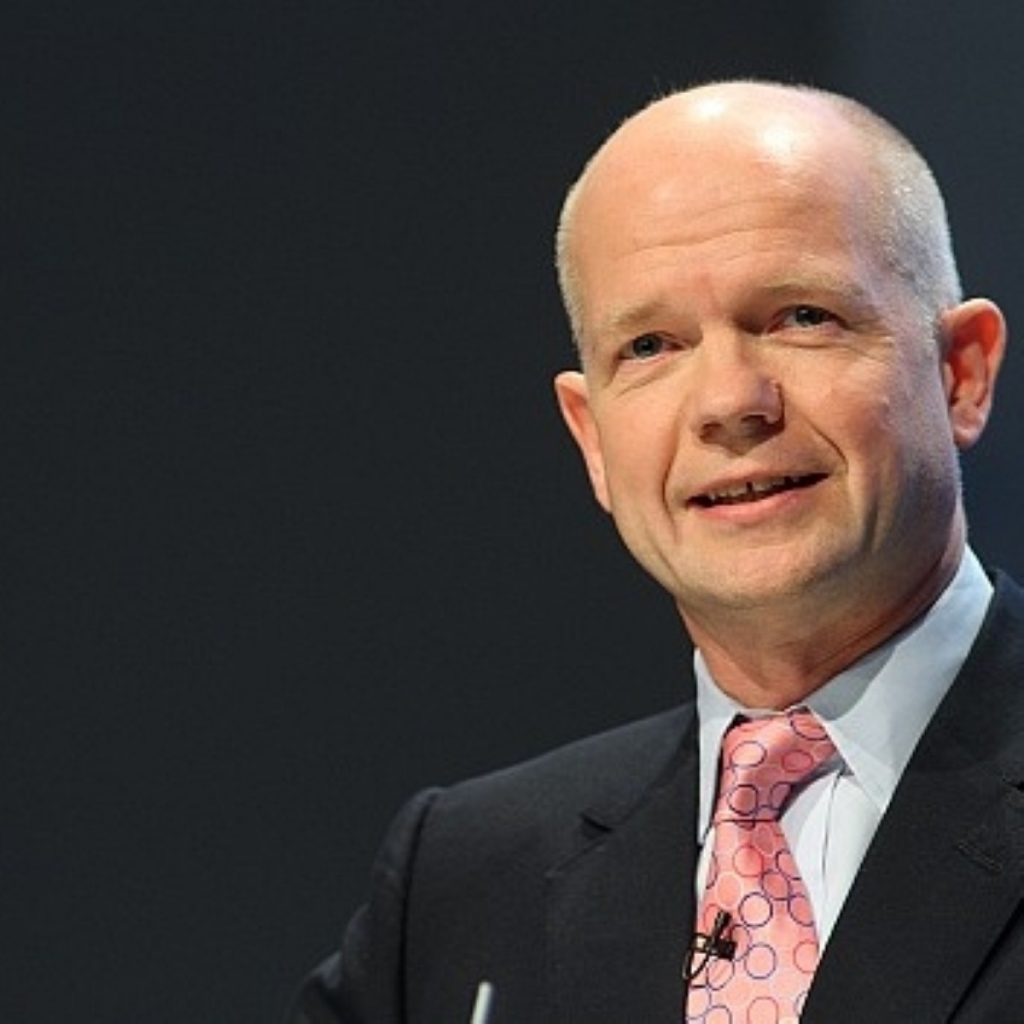Hague courts Russians on Moscow mission
William Hague is in Moscow today as he bids to win over a Russian government deeply concerned by the Conservatives’ foreign policy agenda.
The shadow foreign secretary met with foreign minister Sergei Lavrov in an attempt to persuade him that, if the Tories win the coming general election, the Foreign Office will diminish rather than intensify existing tensions in UK-Russian relations.
A Russian diplomatic source told politics.co.uk the meeting was being viewed in Moscow as an opportunity to explain the many “common interests” Britain and Russia share.


“I have always said that we will open a door to better relations with Russia and see if a door opens in return,” Mr Hague said after his meeting with Mr Lavrov. “This visit is part of that effort.”
The discussion covered Iran and the nuclear Non-Proliferation Treaty, Afghanistan, climate change, international terrorism, human rights issues, the Litvinenko case and the work of the British Council, the Conservatives said.
It follows an especially rocky patch in ties between London and Moscow following the disruption of British Council activities in Russia, the death of former KGB agent Alexander Litvinenko and the harassment of energy firm Shell.
Mr Hague and Mr Lavrov met at the G20 summit in London last spring but diplomatic contact between the two countries remains limited.
The shadow foreign secretary made clear at the meeting that, while the Tories are prepared to overlook previous issues including the Russian refusal to extradite Mr Litvinenko’s alleged killer Andrei Lugovoi, Russia’s August 2008 military intervention in Georgia remains a bone of contention.
Russian officials are now hoping Mr Hague pledges to turn over a “blank sheet of paper” allowing them to build on shared interests, including climate change, Afghanistan and peace in the Middle East.
The fundamental desire for rapprochement common to both London and Moscow means the Russian government need not be so concerned, according to James Nixey of Chatham House.
The head of the thinktank’s Russia and Eurasia programme told politics.co.uk: “The realities of power mean the Conservatives tend to soften up and become more pragmatic [when they gain power]. There will be more political expediency.
He added that the Russians will be looking for a “steady improvement”, explaining: “That’s why we’ve got so little to worry about.”
The Conservatives are viewing the invitation as a special honour, given the rarity with which Russian ministers meet with foreign opposition politicians.
“They know which side the butter’s on, they’re just looking to the future,” Mr Nixey said.
Mike Hancock, the chairman of the all-party parliamentary group on Russia, praised Mr Hague for his interest in developing relationships with Moscow.
“William Hague talks a good talk but he hasn’t really exposed himself to any real critical engagement on what his policies are, on what his relationships are with the EU or Russia,” he said.
“I hope when Hague comes back he might engage with the British people about where the Tories’ foreign policy is going.”
Mr Hancock, the Liberal Democrat MP for Portsmouth South, criticised the current government for its limited bilateral contact with the Labour government. Four years have passed since foreign secretary David Miliband’s 2005 visit to Moscow.
“For a country like the UK not to have had any senior exchange for four years is pretty sick in international relationships terms. It means the UK gets sidelined,” he added.









